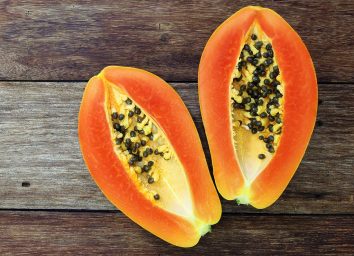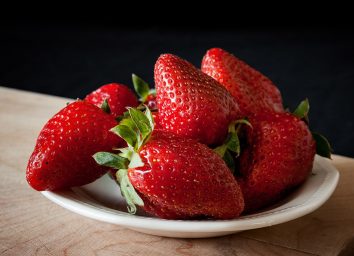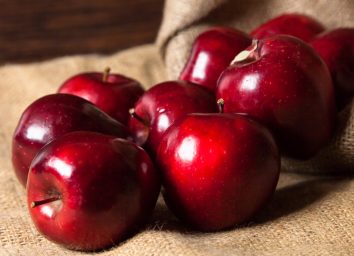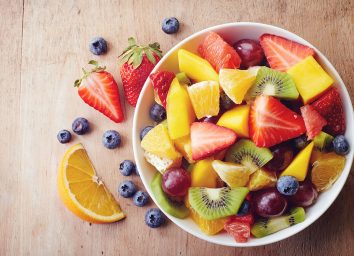7 Science-Backed Reasons To Eat More Cantaloupe
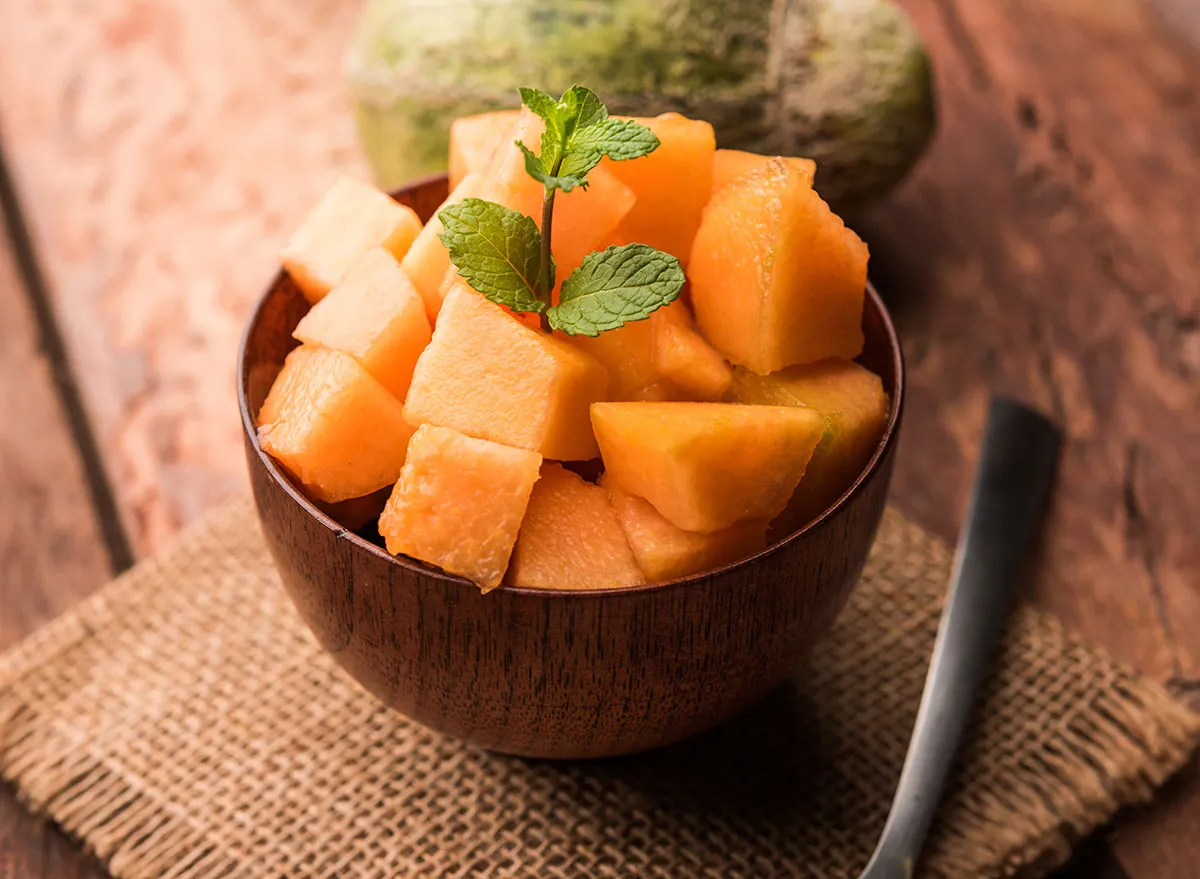
When you're standing in the produce aisle picking out fruit, you may not think about taking a cantaloupe home—but you really should, because this humble melon is one of the healthiest and most versatile options in the supermarket.
Most adults need to eat anywhere from one to two cups of fruit per day and cantaloupe is a stellar choice: not only is it chock full of water, antioxidants, vitamins, and minerals, says Amy Shapiro, RD, CDN, and founder of Real Nutrition, you don't even need to be wary of the sugar found in fresh fruit.
"The fiber in whole fruit helps to slow down the absorption of the naturally occurring (healthy!) sugars, which helps with blood sugar control," she says.
How to eat more cantaloupe
Cutting into a cantaloupe can seem intimidating, but it's actually pretty easy. Slice it in half length-wise and then scoop out and discard the seeds with a spoon. Then, slice it into wedges or cut the fruit away from the rind and dice it up.
Once you've done that, you can enjoy your cantaloupe exactly as it is, or work it into a variety of recipes:
- Toss diced cantaloupe into fruit or fresh green salads
- Wrap thinly-sliced prosciutto around it
- Blend it into smoothies
- Add it to fruity salsas served over chicken or fish
- Make chilled cantaloupe soup
Now that we've given you a bunch of ways to enjoy cantaloupe on the daily, here are seven science-backed reasons why you should eat cantaloupe.
1. It's super hydrating.
When it comes to fruits with high water content, watermelon (surprise!) takes top billing—but cantaloupe isn't far behind. Cantaloupe falls at 90 percent water per gram.
"Cantaloupe is an excellent fruit to beat dehydration, either post-workout or on a hot day," says Shapiro. Because it contains so much water, one cup also has only 53 calories.
2. It has antioxidant power.
Antioxidants (i.e. compounds that can prevent cell damage) come in many different forms, but the notable one here is beta carotene. Our bodies convert beta carotene to vitamin A—which in the case of cantaloupe, gives the fruit its orange color.
But that's not all beta carotene does. Shapiro says the beta carotene in cantaloupe reduces cell damage, possibly reducing the risk of cancer along with it. It may also reduce inflammation since it contributes to immune and cell tissue health.
3. It could help you have a healthier pregnancy.
Cantaloupe is high in something called folate, or vitamin B9. In addition to being critical to the production of healthy red blood cells, folate performs another important task.
"Folate is needed during the first few weeks of pregnancy for the healthy formation of a baby's neural tube," says Sarah Rueven, RD, CDN and the founder of Rooted Wellness. The CDC recommends that all women of child-bearing age receive 400 grams of folate every day, because a baby's neural tube develops in the very early stages of pregnancy (often before a woman even realizes she is pregnant).
4. It has a whole day's worth of vitamin C.
One cup of diced cantaloupe will get you to about 95 percent of your daily intake, so if citrus fruit really isn't your thing, opt for some mellow melon instead.
"A cup of cantaloupe provides 65 milligrams of vitamin C," says Shapiro, "and the current dietary guidelines recommend that women get 65 milligrams of vitamin C per day, while men aim for 75 milligrams."
So even though fresh cantaloupe might seem like a summery fruit, if you're hoping to fight back against winter colds, you should definitely reconsider.
5. It's a good source of potassium.
If you need more potassium, the first food that comes to mind is probably bananas. And while bananas are a great source of potassium, so is cantaloupe: Shapiro says that one serving contains nearly 10 percent of the daily recommended value.
"Potassium is essential for cardiovascular health, specifically working to ensure healthy blood pressure," she says. With lower blood pressure also comes a lower risk of stroke, per Harvard Health.
6. It keeps your eyes healthy.
Remember when your grandma told you that eating carrots would help your eyesight? She wasn't totally wrong. Orange foods, like carrots, sweet potatoes, and—you guessed it—cantaloupe, are high in beta carotene. Two antioxidants in particular (lutein and zeaxanthin) are produced when our bodies process beta carotene.
The result? A one-two punch for your eye health.
"The combination of lutein and zeaxanthin helps reduce the risk of age-related macular degeneration (AMD)," says Shapiro. AMD is a condition that affects the retina and is characterized by extremely damaged and blurred vision.
After two studies researching the effects of certain antioxidants on AMD, the National Eye Institute confirmed that lutein and zeaxanthin play an important role in absorbing damaging forms of blue and ultraviolet light (which can contribute to AMD).
7. It's a cocktail of beauty-boosting vitamins.
Eating cantaloupe may even start to have an effect on your appearance. If your nightly wrinkle cream contains retinol, you're putting vitamin A on your skin—which isn't quite the same thing as eating it in cantaloupe. Some researchers have even made a similar connection. A small 2012 study published in the Journal of Nutrition and Metabolism showed that oral supplementation of carotenoids like vitamin A could stave off premature aging.
Vitamin C, on the other hand, is also a common ingredient in skincare serums and creams because of its anti-aging power. According to Oregon State University, topical application of vitamin C may limit ultraviolet damage and boost collagen production. Getting some extra vitamin C in your daily cantaloupe can't hurt, right?
